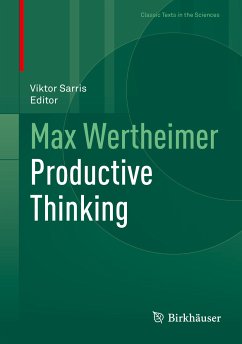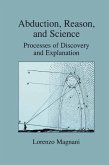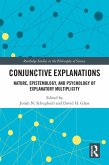Detailed historical commentary by Viktor Sarris.
Only a few texts in psychology have remained significant even after a period of three quarters of a century - Max Wertheimer's Productive Thinking is such an exception. This book, which also presents an exposition of Gestalt psychology, highlights the "productive" (insightful) versus automatic (unreflected) thought processes for manyareas of life. In addition to examples from school teaching, the chapter on the emergence of Albert Einstein's theory of relativity is of lasting interest to today's generation of psychologists, pedagogues, brain researchers, neuroinformatics scientists/researchers and philosophers. Wertheimer had the unique opportunity to analyze Einstein's thinking in direct conversation. An introductory commentary by Viktor Sarris for this new edition of the first publication of Productive Thinking in 1945 offers a detailed account of the genesis and reception of Wertheimer's work.
Dieser Download kann aus rechtlichen Gründen nur mit Rechnungsadresse in A, B, BG, CY, CZ, D, DK, EW, E, FIN, F, GR, HR, H, IRL, I, LT, L, LR, M, NL, PL, P, R, S, SLO, SK ausgeliefert werden.
"Making these ideas accessible again through the new edition of this book, for which Viktor Sarris deserves thanks and appreciation, should be a contribution to the enrichment of our science of thinking and problem solving today, but above all an encouragement to every reader to take the risk and the pleasures of productive thinking in every day life." (Gerhard Stemberger, Gestalt Theory, Vol. 43 (2), 2021)









